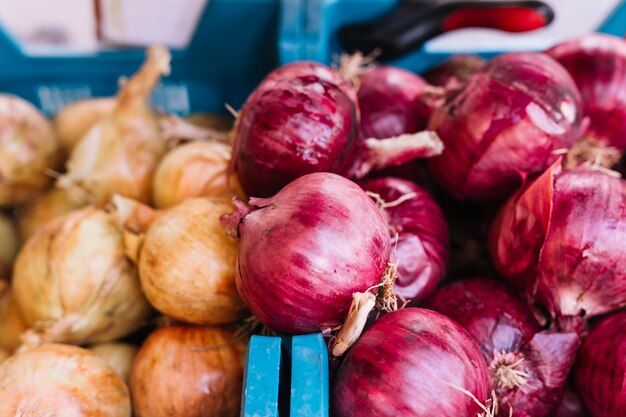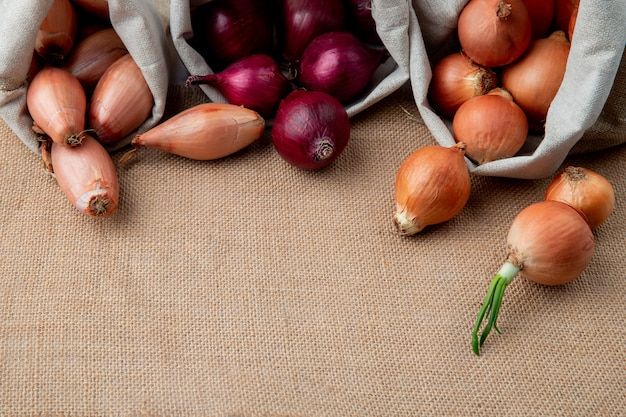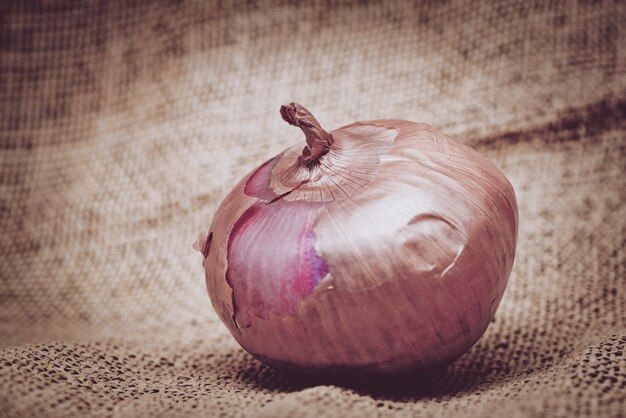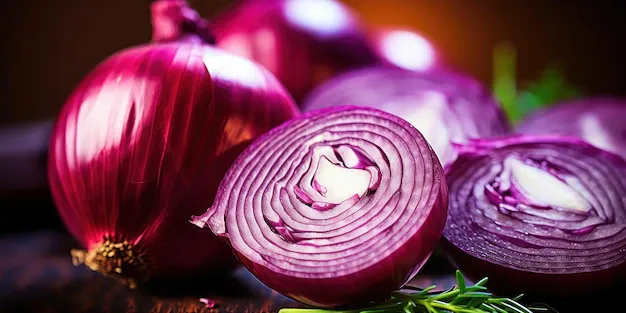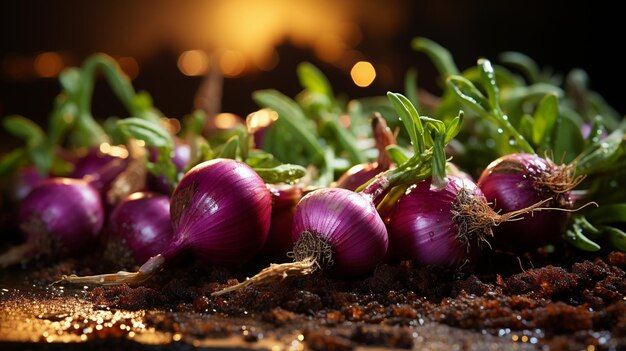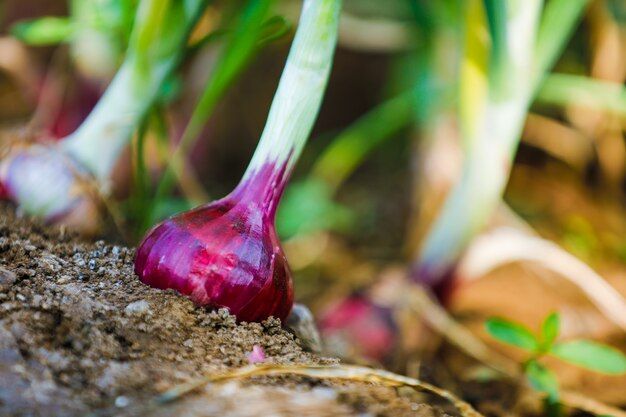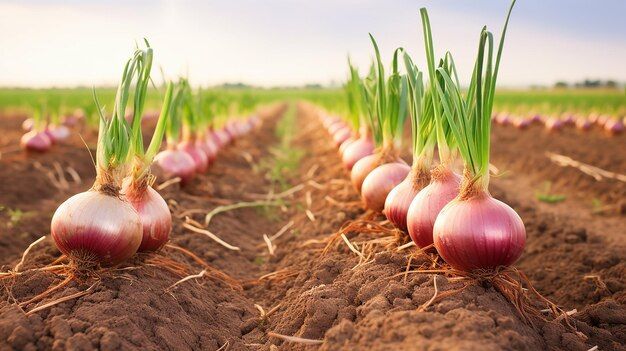Onion (Allium cepa) is one of the oldest cultivated crops in the world, primarily grown for its culinary uses and medicinal properties. It belongs to the family Amaryllidaceae and is cultivated extensively across the globe due to its wide adaptability, ease of cultivation, and diverse applications. Onions are used in a variety of cuisines and are a fundamental ingredient in the preparation of countless dishes. They can be consumed in raw, cooked, dried, or powdered form.
1. Soil and Climatic Requirements
Onion cultivation thrives in a variety of climatic conditions, ranging from tropical to temperate climates. However, it is generally grown in regions with moderate temperatures, ideally between 13°C and 24°C. The crop is highly sensitive to frost and requires a warm growing season.
Soil: Onions grow best in well-drained, loamy soils that are rich in organic matter and have a slightly acidic to neutral pH (6.0 to 7.0). The soil should be loose and friable to allow the formation of large bulbs. Heavy clay soils are unsuitable for onion cultivation as they tend to retain excess water and cause the bulbs to rot.
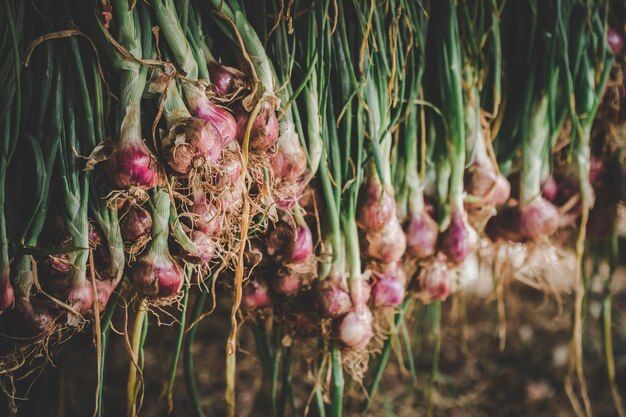
2. Land Preparation
The land should be cleared of weeds and residues from previous crops. The soil is tilled thoroughly, and in some cases, raised beds are prepared to ensure proper drainage. Organic matter, such as compost or farmyard manure, is added to improve soil fertility. Depending on soil conditions, fertilizers rich in nitrogen, phosphorus, and potassium may be applied.
3. Varieties of Onions
Onions can be categorized into three main types based on color: white, yellow, and red onions. Additionally, onions are classified according to their growing season: short-day, long-day, and day-neutral varieties. The choice of variety depends on the geographical location and the length of daylight hours available during the growing season.
Short-day varieties are suitable for regions with shorter day lengths and are typically grown in southern latitudes.
Long-day varieties require longer daylight hours and are grown in northern latitudes.
Day-neutral varieties can be grown in areas with moderate day lengths.
4. Planting and Spacing
Onions can be propagated through seeds, sets (small bulbs), or transplants. The most common method is seed sowing, followed by transplanting the seedlings. In commercial cultivation, onions are often raised in nurseries before being transplanted into the main field.
The spacing between plants is essential to ensure that the onions have enough room to develop large bulbs. Typically, onions are spaced 10–15 cm apart within rows, with 30–45 cm between rows.
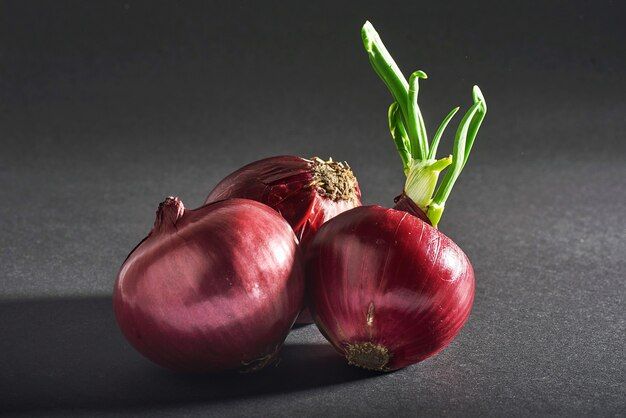
5. Irrigation
Onions require consistent moisture throughout their growing period. However, they are sensitive to waterlogging, and over-irrigation can lead to root rot. Drip irrigation is ideal for onion crops as it ensures efficient water delivery to the root zone while preventing water wastage. Irrigation should be reduced during the maturation phase to avoid bulb splitting and fungal infections.
6. Weed and Pest Management
Weeds compete with onions for nutrients, water, and light. Weed control is essential, and it is typically managed through a combination of manual weeding, herbicide application, and mulching. Mulching helps conserve soil moisture, suppress weed growth, and reduce soil temperature.
Onions are susceptible to a variety of pests and diseases, including onion flies, aphids, and fungal infections like downy mildew and white rot. Integrated pest management (IPM) practices are often employed, combining biological, cultural, and chemical controls to minimize pest damage.
7. Fertilization
Onions require balanced fertilization, particularly nitrogen, which promotes healthy leaf growth. However, excessive nitrogen can lead to poor bulb formation. Phosphorus and potassium are also important for root and bulb development. Fertilizers should be applied in multiple stages to ensure that the crop receives adequate nutrients at various growth stages.
8. Harvesting
Onions are typically harvested when their tops begin to dry, and the leaves start to yellow. The harvesting period can vary depending on the variety and growing conditions, but it generally takes around 100 to 150 days from planting to harvest. Once harvested, onions are cured by allowing them to dry in the field for a few days or in a well-ventilated area to improve their storage life.
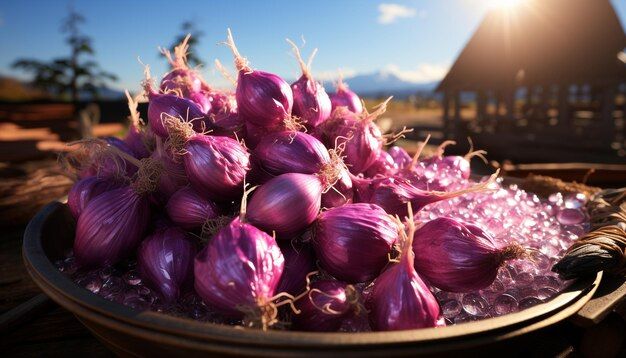
9. Post-Harvest Handling
After harvesting, onions are cleaned, sorted, and graded according to size and quality. Proper curing and storage are essential to ensure that onions retain their flavor and texture for a longer time. They are usually stored in a cool, dry place with good ventilation. In commercial settings, onions are often stored in cold storage to prevent sprouting.
Pros and Cons of Eating Onions
Onions are not only a staple ingredient in kitchens worldwide but also a food that offers numerous health benefits. However, like all foods, they come with some drawbacks, especially when consumed in excess. Below, we explore the pros and cons of eating onions.
Pros of Eating Onions
A. Rich in Nutrients Onions are a rich source of several vitamins and minerals, including vitamin C, vitamin B6, folate, and potassium. Vitamin C, a potent antioxidant, helps boost the immune system, promotes skin health, and aids in the healing of wounds. Vitamin B6 is essential for proper brain function, and folate plays a crucial role in cell division and growth.
B. Antioxidant Properties Onions are packed with antioxidants, particularly flavonoids like quercetin. Antioxidants help protect the body from oxidative stress, which is caused by free radicals. The antioxidants in onions have been shown to reduce inflammation and lower the risk of chronic diseases like heart disease, diabetes, and cancer.
C. Support Digestive Health Onions are an excellent source of dietary fiber, particularly inulin, a prebiotic fiber. Prebiotics nourish the beneficial bacteria in the gut, which plays a key role in digestion and overall gut health. A healthy gut microbiome is linked to improved digestion, better absorption of nutrients, and enhanced immune function.
D. Heart Health Regular consumption of onions may contribute to heart health due to their ability to lower blood pressure, reduce cholesterol levels, and improve blood circulation. The sulfur compounds in onions help lower harmful LDL cholesterol and increase beneficial HDL cholesterol, reducing the risk of atherosclerosis and heart disease.
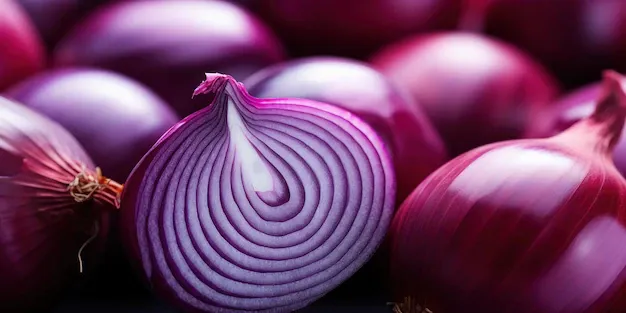
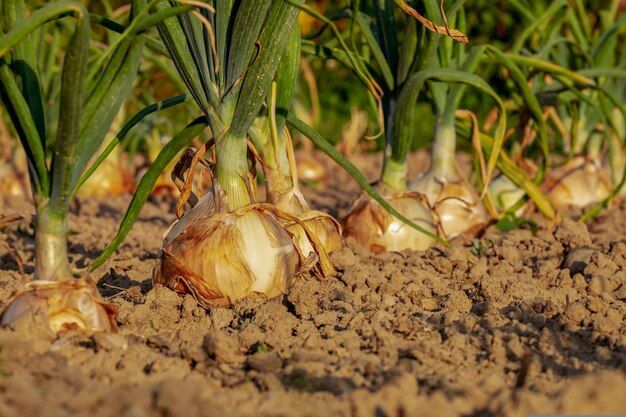
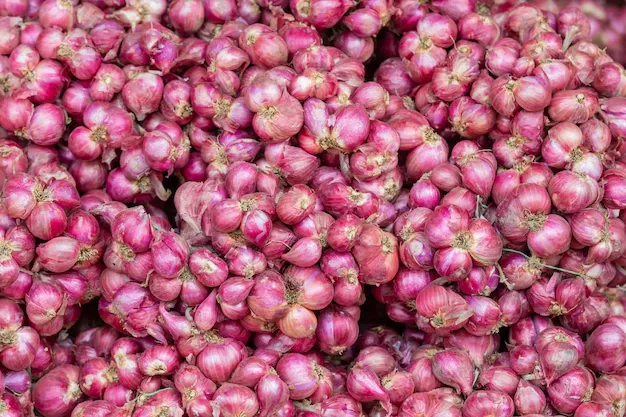
F. Anti-Inflammatory Effects Onions have natural anti-inflammatory properties due to their rich content of antioxidants and sulfur compounds. Chronic inflammation is a contributing factor in many diseases, including arthritis, cardiovascular disease, and certain cancers. Eating onions may help reduce inflammation and lower the risk of these conditions.
G. Blood Sugar Regulation Onions may have a beneficial effect on blood sugar levels, making them particularly useful for people with diabetes. Studies have shown that the sulfur compounds in onions can help improve insulin sensitivity and reduce blood glucose levels. The fiber in onions also helps stabilize blood sugar by slowing the absorption of sugar into the bloodstream.
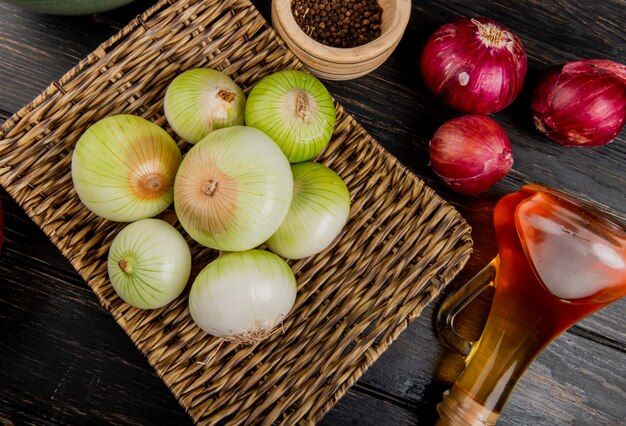
H. Cancer Prevention Onions contain compounds like organosulfur and flavonoids, which have been studied for their potential anti-cancer properties. Research suggests that regular consumption of onions may help prevent certain types of cancer, such as stomach, colorectal, and breast cancer, by inhibiting the growth of cancer cells and reducing inflammation.
I. Improved Bone Health Onions are a good source of vitamin C, which plays a key role in collagen synthesis and bone health. Additionally, the compounds in onions may help improve calcium absorption, supporting stronger bones and reducing the risk of osteoporosis.
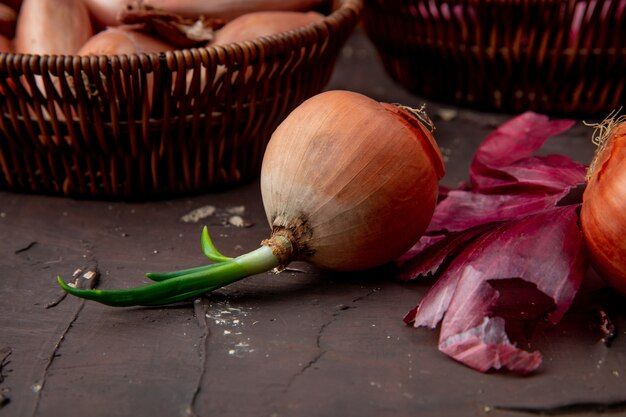
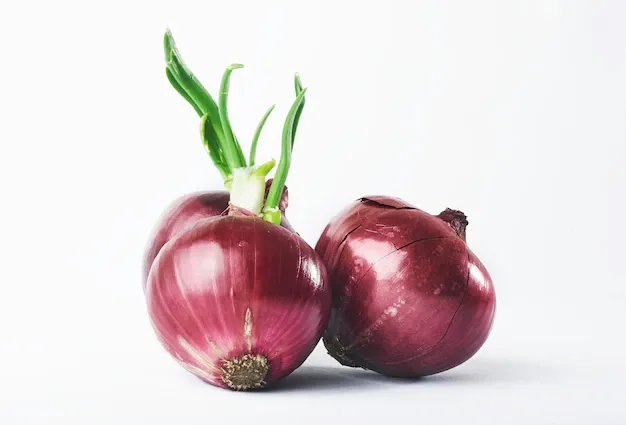
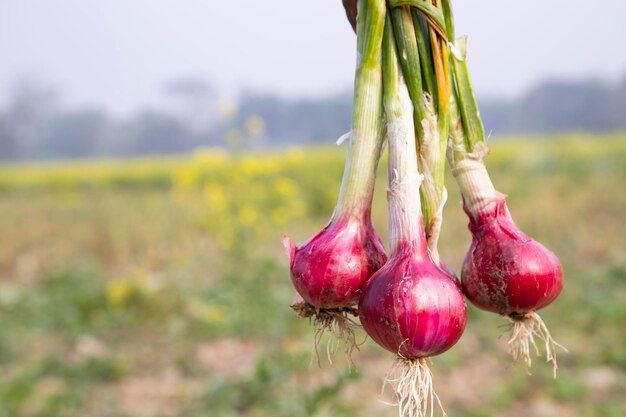
J. Detoxification Onions contain sulfur compounds that may help detoxify the body by promoting the elimination of toxins. The natural diuretic effect of onions can also help flush out excess fluids and waste products from the kidneys, supporting kidney function and detoxification.
Cons of Eating Onions
A. Digestive Discomfort Onions can cause digestive discomfort in some people, particularly those with sensitive stomachs or conditions like irritable bowel syndrome (IBS). Onions contain fructans, a type of carbohydrate that can be difficult to digest, leading to bloating, gas, and other gastrointestinal issues.
B. Bad Breath One of the most well-known drawbacks of eating onions is the strong odor they leave on the breath. The sulfur compounds in onions are responsible for their distinctive smell, which can linger long after eating. While this odor is not harmful, it can be socially undesirable, especially after consuming raw onions.
C. Eye Irritation Cutting onions often leads to tearing and eye irritation due to the release of sulfuric compounds. These compounds, called syn-Propanethial-S-oxide, vaporize and irritate the eyes, causing them to produce tears as a protective mechanism. While this is not harmful, it can be bothersome.
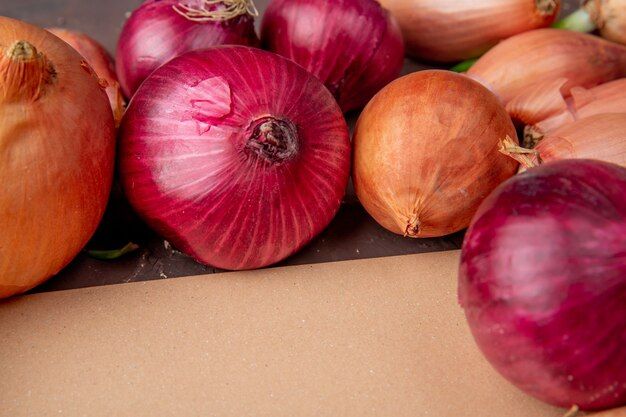
D. Allergic Reactions Some individuals may be allergic to onions or may experience sensitivities to certain compounds present in them. Symptoms of an onion allergy may include skin rashes, itching, swelling, or difficulty breathing. Severe reactions are rare but may require medical attention.
E. Heartburn and Acid Reflux For people prone to acid reflux or gastroesophageal reflux disease (GERD), onions can trigger or worsen symptoms. The high fiber content and sulfur compounds may irritate the stomach lining, leading to heartburn or acid reflux in some individuals.
F. May Interfere with Blood Thinning Medications Onions contain compounds that have natural blood-thinning effects. While this can be beneficial for heart health, it may interfere with blood-thinning medications like warfarin. People on such medications should be cautious about consuming large quantities of onions and should consult with a healthcare provider before making any dietary changes.
G. May Cause Allergies in Some People Some individuals may experience allergic reactions to onions, resulting in skin rashes, hives, or more severe symptoms. This is more common with raw onions, and those with sensitivity to garlic or other members of the Allium family may also react to onions.
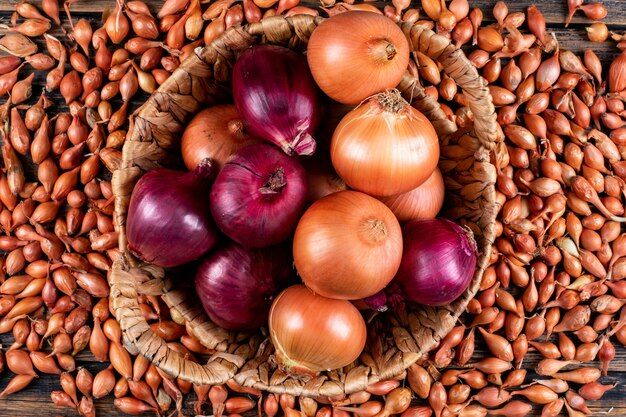

image source
Onions are a highly nutritious and versatile vegetable that offers numerous health benefits when consumed as part of a balanced diet. They are rich in antioxidants, vitamins, minerals, and fiber, making them beneficial for heart health, digestion, and immune function. However, they can cause digestive discomfort, bad breath, and eye irritation for some people. Despite these potential drawbacks, the pros of eating onions far outweigh the cons, especially when consumed in moderation and as part of a healthy, varied diet.
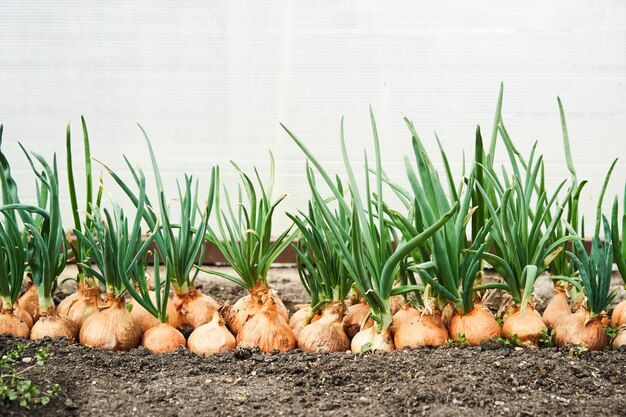
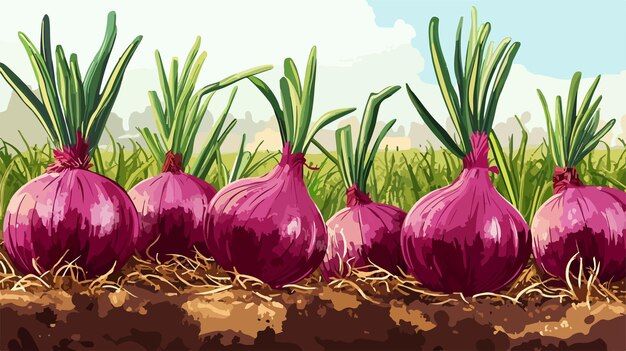
Video credit Epic gardening YouTube channel
So far Today...
Stay Home
Thanks for Your Time Friend.
♥♥♥♥♥♥
Ok
See you Again in a New blog.
Thanks for being with me.
Plese Follow Me......
@mspbro
★★To contact me★★
Subscribe My 3speak Channel https://3speak.online/user/mspbro
Follow me Twitter https://twitter.com/mdsumonpra
Add me Facebook https://www.facebook.com/sumon.mim84
